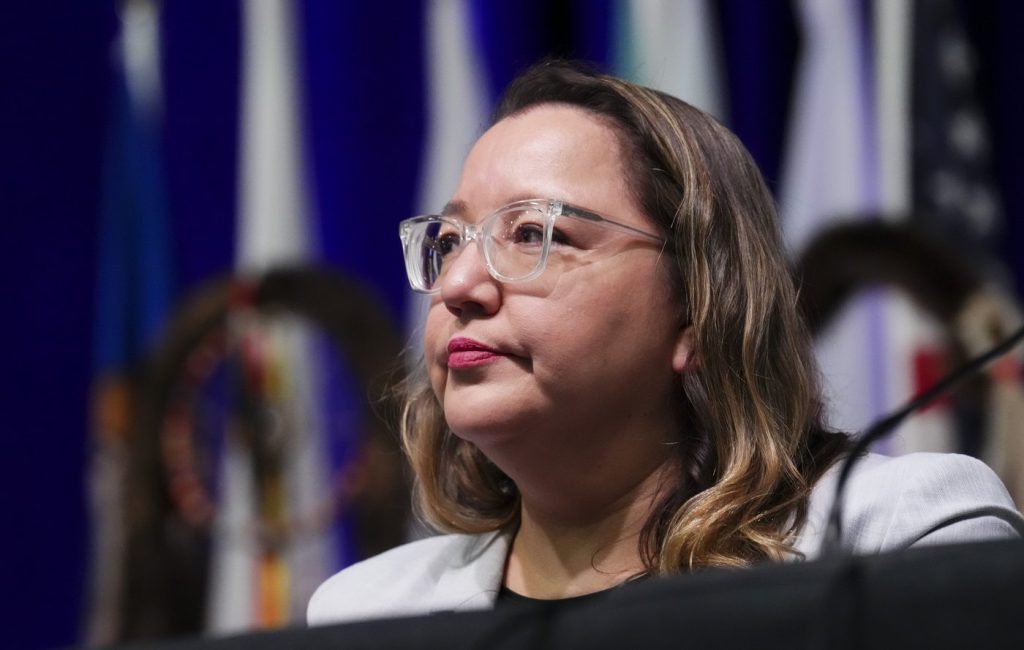OTTAWA — The national chief of the Assembly of First Nations, Cindy Woodhouse Nepinak, has criticized the recent discussions surrounding Alberta's potential separatism, deeming such conversations as "irresponsible." She emphasized that it is "not smart" for politicians, particularly those in leadership positions, to make statements about separating from Canada without first consulting Indigenous communities and First Nations representatives.
Alberta Premier Danielle Smith has recently taken significant steps towards this direction by introducing a bill aimed at simplifying the process for Albertans to initiate referendums on various issues, which notably includes the notion of splitting from Canada. Smith has highlighted a growing sentiment of alienation among Alberta’s residents and expressed their frustration with the federal government's policies and decisions. She indicated that those advocating for separation are not merely "fringe voices," but represent a more significant portion of the Albertan populace who feel marginalized.
In response to the prevailing separatism rhetoric, Chief Woodhouse Nepinak asserted that any attempt by Alberta to detach from Canada would be "unconstitutional." She articulated that such a move would not only be legally dubious but would also represent a "direct affront" to the sacred treaties that were established long before Alberta's creation. These treaties, she pointed out, are foundational agreements that recognize and protect the rights of First Nations over their inherent land and resources.
Chief Woodhouse emphasized that First Nations have never surrendered their inherent rights and that any push for separatism would undermine these treaties and, by extension, the very foundation upon which Canada is built. She argued that discussions of Alberta's separation should not occur without recognizing the implications they have for Indigenous rights and the treaties that safeguard them.
In conjunction with her criticisms of the separatism discourse, Chief Woodhouse called for a thorough federal review of natural resource transfer agreements. She expressed concern that First Nations were never consulted when these agreements were established between the provinces and the federal government. This lack of consultation highlights ongoing issues regarding the engagement of Indigenous peoples in decisions that fundamentally impact their rights and territories.
These remarks from Chief Woodhouse align with a broader context of Indigenous rights discussions in Canada, which continue to evolve amidst changing political landscapes. As the calls for separatism gain traction in Alberta, the Assembly of First Nations and other Indigenous leaders are asserting the necessity of including First Nations voices in these conversations, highlighting their unique legal and historical status within the framework of Canadian governance.
The discourse surrounding Alberta's potential separation and its implications reflects larger themes of provincial autonomy, Indigenous rights, and the necessity for dialogue that includes all voices in the conversation about Canada's future.











